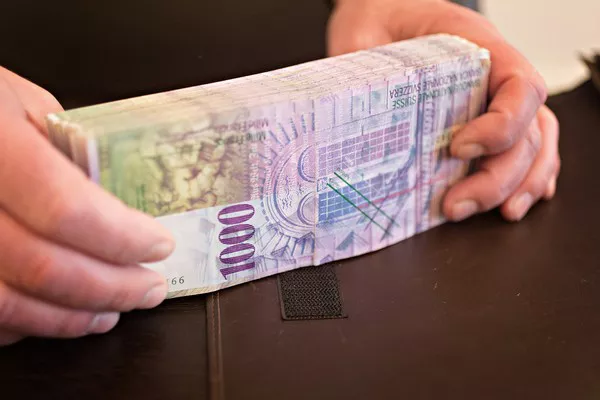In the world of finance and investment, currency conversion is a fundamental aspect of managing international transactions and investments. For investors, businesses, and individuals dealing with Swiss Francs (CHF) and Euros (EUR), understanding the conversion process and the factors influencing exchange rates is essential. This article provides a detailed analysis of how much 250 Swiss Francs (CHF) is in Euros (EUR), explores the current exchange rate, and examines the factors influencing these rates.
Understanding Currency Exchange
Basics of Currency Conversion
Currency conversion involves determining the value of one currency in terms of another. The exchange rate between two currencies indicates how much of one currency is needed to purchase a unit of another currency. For example, the CHF/EUR exchange rate tells us how many Euros are equivalent to one Swiss Franc.
To convert 250 CHF to EUR, you need the current exchange rate for CHF/EUR. The formula for conversion is:
Amount in EUR=Amount in CHF×Exchange Rate
The exchange rate is 1 CHF = 1.06 EUR, then:
250 CHF×1.06 EUR/CHF=265.91 EUR
This result indicates that 250 Swiss Francs is equivalent to 265.91 Euros at this exchange rate.
Sources for Exchange Rate Information
Accurate and up-to-date exchange rates are crucial for precise currency conversion. Reliable sources include:
Financial News Platforms: Websites such as Bloomberg, Reuters, and CNBC provide current exchange rates and financial analysis.
Currency Converter Tools: Online tools like OANDA and Google Finance offer real-time conversion rates.
Central Banks: The Swiss National Bank (SNB) and the European Central Bank (ECB) publish official exchange rates and economic reports.
Factors Affecting Exchange Rates
Exchange rates are influenced by a variety of factors, including:
Economic Indicators: Key indicators such as GDP growth, inflation rates, and employment statistics impact currency values. For example, strong economic performance in Switzerland can strengthen the CHF relative to the EUR.
Interest Rates: Central bank policies and interest rates play a crucial role in currency valuation. Higher interest rates can attract foreign investment, leading to a stronger currency.
Political Events: Geopolitical stability and policy decisions affect investor confidence and currency exchange rates. Events such as elections, trade agreements, and international conflicts can lead to fluctuations in the CHF/EUR rate.
Market Sentiment: Investor perception and speculative trading can drive short-term changes in exchange rates. Market reactions to global economic trends and financial news can influence the CHF/EUR rate.
Historical Exchange Rate Trends
Long-Term Trends
Analyzing historical exchange rate trends between the Swiss Franc and the Euro provides context for current rates. Over the past decade, the CHF/EUR exchange rate has experienced variations due to economic conditions and major events.
For instance, during the European debt crisis, the Swiss Franc appreciated against the Euro as investors sought safe-haven assets. Conversely, during periods of economic stability in the Eurozone, the Euro strengthened against the Swiss Franc.
See Also: Current CHF Exchange Rate: 1.70166 CHF to USD
Recent Developments
Recent developments impacting the CHF/EUR exchange rate include:
COVID-19 Pandemic: The global pandemic led to significant fluctuations in currency values as economies adapted to new challenges. The Swiss Franc, known for its safe-haven status, saw fluctuations in response to economic uncertainties.
Monetary Policy Changes: Adjustments in monetary policy by the Swiss National Bank and the European Central Bank have influenced the CHF/EUR exchange rate. Interest rate changes, quantitative easing measures, and other policy actions can impact currency values.
Impact of Exchange Rate Fluctuations
For Investors
For investors, currency exchange rate fluctuations can impact portfolio performance and returns. Holding assets denominated in CHF while operating in EUR markets introduces currency risk. Exchange rate movements can affect the value of investments and overall portfolio performance.
Effective currency risk management strategies are essential for mitigating potential impacts:
Hedging: Financial instruments such as currency forwards, options, and futures can be used to hedge against adverse currency movements.
Diversification: Spreading investments across different currencies and assets can help reduce exposure to currency risk.
For Businesses
Businesses engaged in cross-border trade or operations face currency risk when dealing with multiple currencies. For example, a Swiss company exporting goods to the Eurozone will be impacted by changes in the CHF/EUR exchange rate. A stronger Euro can result in higher revenues in CHF terms, while a weaker Euro may reduce revenue.
Business strategies to manage currency risk include:
Currency Hedging: Using hedging instruments to lock in exchange rates and reduce uncertainty.
Pricing Strategies: Adjusting prices to reflect currency fluctuations and maintain profit margins.
Operational Diversification: Spreading operations and revenues across different currencies to minimize exposure.
For Individuals
For individuals, especially those traveling or making international purchases, exchange rate fluctuations can impact spending power. A favorable exchange rate provides better value when converting money, while an unfavorable rate increases costs.
Strategies for individuals to manage currency conversion include:
Monitoring Exchange Rates: Using currency converter tools and financial news platforms to track rates and identify optimal conversion times.
Using Multi-Currency Accounts: Some financial institutions offer multi-currency accounts that allow individuals to hold and manage different currencies, reducing the need for frequent conversions.
Conclusion
Understanding the conversion of 250 Swiss Francs to Euros is essential for making informed financial decisions, whether for investment, business, or personal purposes. At the current exchange rate of approximately 1.06 EUR per CHF, 250 Swiss Francs is equivalent to 265.91 Euros.
By analyzing exchange rate trends, considering factors influencing currency values, and applying effective currency management strategies, investors, businesses, and individuals can navigate the complexities of currency conversion and optimize their financial outcomes. Staying informed about current exchange rates and utilizing reliable sources for conversion data ensures accuracy and helps mitigate risks associated with currency fluctuations.
Related Topics:
- Current CHF Exchange Rate: 100 Swiss Franc in Naira
- Current CHF Exchange Rate: 100 CHF in EUR
- Current CHF Exchange Rate: 10,000 CHF to USD


